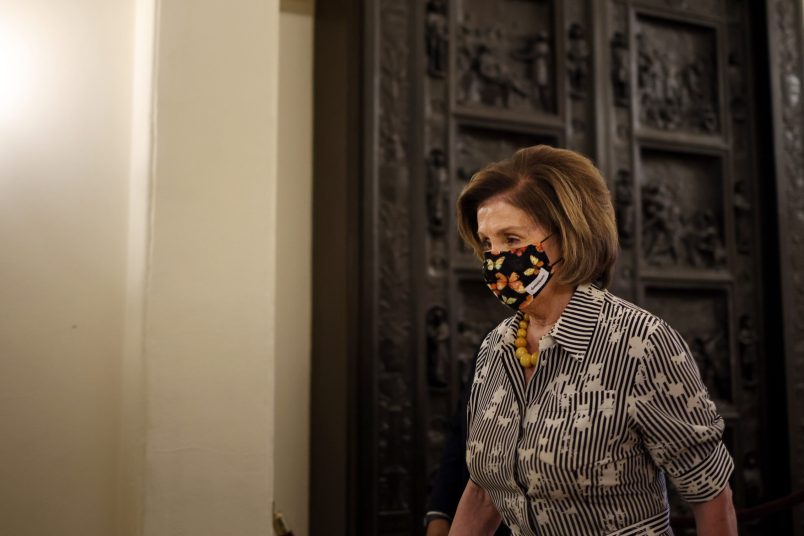A new resolution unveiled Monday revealed the contours of the Jan. 6 select committee, which the House plans to vote on this week.
House Speaker Nancy Pelosi (D-CA) announced that she’d create the committee on Thursday, a last resort after Senate Republicans filibustered her preferred independent, 9/11-style commission. A select committee only needs to pass through the majority-Democratic House, avoiding the same filibuster pitfall in the Senate.
“Sadly, as of last week, there remains no prospect for additional votes from Republican Senators to create the National Commission to Investigate the January 6th Attack on the United States Capitol Complex,” she wrote in an accompanying press release.
The select committee will be 13 members large. Pelosi will appoint all 13, though she’ll consult with House Minority Leader Kevin McCarthy (R-CA) in choosing five of them.
The chair of the committee, who Pelosi will appoint, will have unilateral subpoena power. In the independent commission model, that subpoena authority required Republican participation, a feature critics pointed to as a built-in GOP block.
The chair of the select committee can also order depositions, in consultation with the ranking member.
The committee will issue a final report of its findings, with interim reports “from time to time” as its work proceeds. There is no due date listed for the final report, something sure to further antagonize Republicans who previously expressed concern that such an investigation may wrap up around the 2022 midterms in an unwanted reminder to voters about the role their party played in the insurrection.
The committee’s primary purpose, the resolution said, is “to investigate and report upon the facts, circumstances, and causes relating to the January 6, 2021, domestic terrorist attack upon the United States Capitol Complex,” specifying “the influencing factors that fomented such an attack on American representative democracy.”
Those influencing factors — including, perhaps most obviously, former President Donald Trump and his GOP allies’ campaign to convince their followers that the election was stolen — are the crux of Republican reluctance to support an investigation into the insurrection. Their opposition to the select committee is a virtual guarantee, as even the participation of Rep. John Katko (R-NY) in drawing up the legislation for the now-dead independent commission was not enough to keep them from decrying the bill as a product of Democratic leadership.
Democrats initially insisted on a bipartisan investigation, though most warmed to the idea of a select committee when it became clear that Republicans would not support any legitimate probe.
Read the resolution here:



